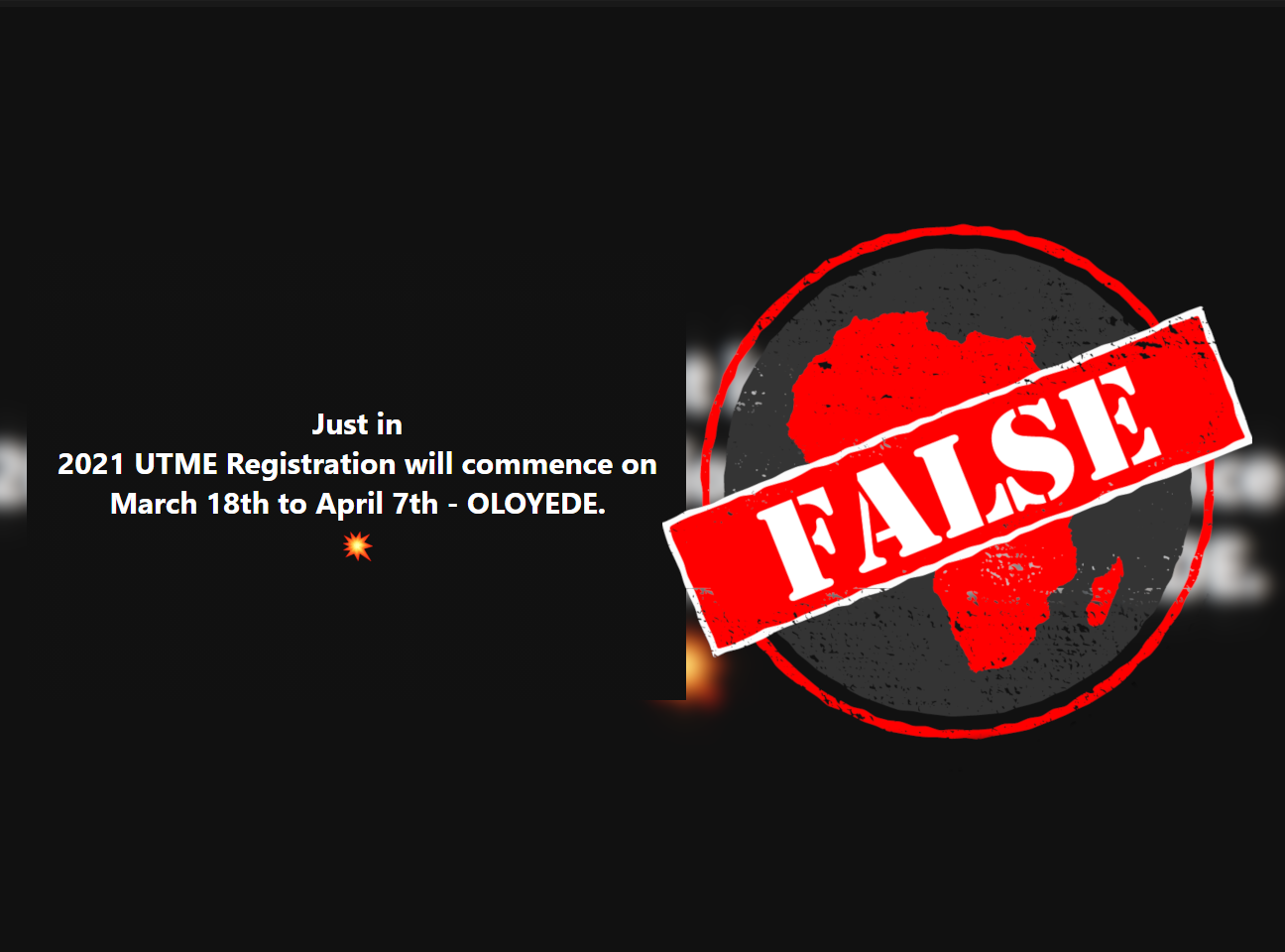Posts on Facebook and Twitter in Nigeria claim to broadcast the registration dates for a national exam.
The posts attribute the information to the Joint Admissions and Matriculations Board, or Jamb, and its registrar, Prof Ishaq Oloyede.
The posts say the registration dates for the 2021 Unified Tertiary Matriculation Examination will start 18 March and end 7 April 2021.
Jamb is Nigeria’s official entrance examination board and its unified exam is mandatory for students seeking admission to any of the country’s tertiary institutions, such as colleges of education, polytechnics and universities.
In 2020, over 2.1 million candidates registered for the exam. At the time, the board described the huge rate of registration as “unprecedented”.
But have the dates for the registration period in 2021 been released?

‘Disregard any tweet from fake account’
Jamb said in an update on its verified Twitter handle on 2 March that “no date has been fixed for 2021 UTME registration”.
It tweeted that the public would be “duly informed” when the date was fixed and to “disregard any tweet from a fake account that stated otherwise”.
This is not the first in 2021 that Jamb has had to debunk news related to the exam registration date.
In January, it warned the public not to “fall prey to fraudsters and rumour mongers”.
Jamb explained then that the delay in the start of the registration period was because of the Covid-19 pandemic.
Any more recent claims that Jamb has confirmed the unified tertiary matriculation exam 2021 registration date are also false.
Republish our content for free
For publishers: what to do if your post is rated false
A fact-checker has rated your Facebook or Instagram post as “false”, “altered”, “partly false” or “missing context”. This could have serious consequences. What do you do?
Click on our guide for the steps you should follow.
Publishers guideAfrica Check teams up with Facebook
Africa Check is a partner in Meta's third-party fact-checking programme to help stop the spread of false information on social media.
The content we rate as “false” will be downgraded on Facebook and Instagram. This means fewer people will see it.
You can also help identify false information on Facebook. This guide explains how.


Add new comment